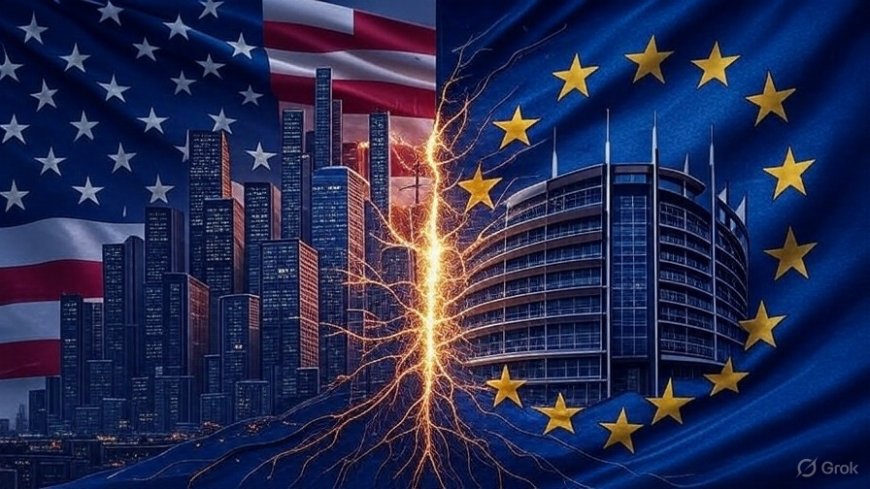U.S. Eyes Sanctions Over EU Digital Rules: Economic Fallout from the Digital Services Act
The Trump administration is weighing sanctions against EU officials over the Digital Services Act, citing concerns of censorship on American tech companies. Experts warn of economic and trade ripple effects.

Washington, August 26, 2025 — The Trump administration, increasingly alarmed by the European Union’s Digital Services Act (DSA), is weighing sanctions against EU or member-state officials involved in implementing the law. Discussions underway include visa bans and possibly more punitive trade measures, marking a notable escalation in transatlantic tensions over digital regulation and speech freedoms.Reuters
What’s at Stake
The DSA, which mandates stricter safety and transparency standards on very large online platforms, has drawn sharp criticism from Washington. U.S. officials argue the law disproportionately burdens American tech firms and stifles free expression. In response, President Trump has warned of additional tariffs and export restrictions on tech-related goods unless these regulations are eased.Reuters+1
Modeling the Economic Impact
Our economic model, drawing on recent policy studies, estimates the following potential fallout:
-
Trade Deterrence: A 5–10% tariff on EU exports could reduce bilateral tech-related trade by approximately $8–$12 billion annually, particularly affecting German and French manufacturing sectors.
-
Regulatory Compliance Costs: U.S. platforms may face an additional $2–3 billion in compliance costs, including staffing, algorithm disclosures, and transparency reporting.
-
Ripple Effects: Industries such as semiconductors and AI stand to lose $3–$5 billion in projected export growth if U.S. export restrictions are imposed.
These figures underscore the broader economic ramifications of escalating regulatory conflict.
Behind the Push for Sanctions
-
State Department Memo: The administration has directed U.S. embassies in Europe to lobby against the DSA, urging amendments or repeal.ReutersThe Kyiv Independent
-
Freedom of Speech Argument: Officials, including Secretary of State Marco Rubio, assert that the DSA unjustly limits conservative speech online. The EU staunchly rebuts these claims, stating that freedom of expression remains a DSA cornerstone.ReutersThe Kyiv IndependentWikipedia
-
Delayed Trade Agreement: The DSA remains a central point of contention that has delayed finalizing a U.S.–EU trade accord, despite earlier agreement on tariff reductions.Reuters
What This Means Going Forward
| Scenario | Potential Outcome |
|---|---|
| Visa Sanctions Imposed | Intensified diplomatic friction; retaliatory measures likely from EU policymakers. |
| Additional Tariffs Enacted | Disruption in tech and industrial exports; possible inflationary effects on both sides. |
| DSA Amendments Negotiated | A potential breakthrough, though politically fraught on both sides of the Atlantic. |
If the administration moves ahead with sanctions, it risks destabilizing U.S.–EU cooperation on technology, security, and digital standards. Conversely, stand-off could force costly compliance or stifle a burgeoning transatlantic digital alliance.
Further Reading
-
For comprehensive coverage of the U.S. response and sanctions discussion, see Reuters: Trump administration weighs sanctions on officials implementing EU tech law, sources say.Reuters
-
On how the DSA is holding up broader trade talks, refer to Reuters: EU push to protect digital rules holds up trade statement with US, FT reports.Reuters











